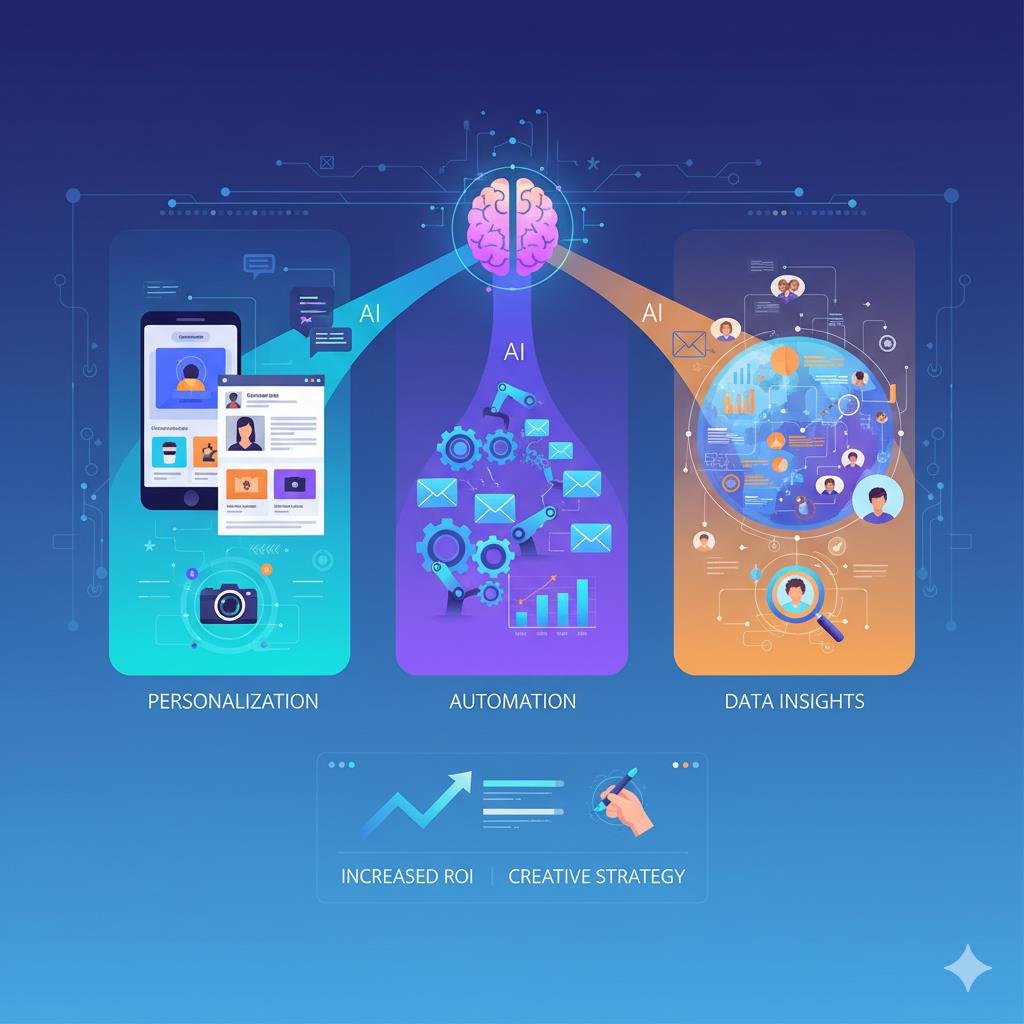How is AI affecting Digital Marketing?
/Artificial Intelligence (AI) is profoundly transforming Digital Marketing, primarily by enabling hyper-personalization, increasing efficiency through automation, and providing deeper customer insights.
Here is a breakdown of how AI is affecting digital marketing, including Key Areas of AI Impact, How AI is Changing It, and Benefits:
Personalization & Targeting
o AI analyzes vast amounts of data (behavior, preferences, purchase history) to create highly accurate customer segments and deliver individualized content, ads, and product recommendations.
o Higher conversion rates, increased customer engagement, and stronger customer loyalty.
Automation & Efficiency
o AI automates routine, repetitive tasks across the marketing workflow, such as email sends, social media scheduling, programmatic ad buying, and A/B testing.
o Significant time savings for marketers, reduced human error, and the ability to focus on strategy and creativity.
Content Creation
o Generative AI tools help create diverse content at scale, including ad copy, email subject lines, blog outlines, social media posts, and even images/videos.
o Faster content generation, content optimization for different audiences and channels, and improved SEO performance.
Customer Experience
o AI-powered chatbots and virtual assistants provide instant, 24/7 customer support, answer FAQs, and even guide users through the buying process.
o Enhanced customer service, faster response times, and an improved overall customer experience.
Data Analysis & Insights
o AI-driven predictive analytics forecast customer behavior, anticipate market trends, and determine the optimal time and channel for messaging.
o Smarter, data-driven decision-making, more accurate performance measurement, and optimized campaign ROI.
Opportunities and Challenges:
Opportunities (Pros)
o Increased ROI due to highly optimized campaigns.
o Scalability — allowing businesses to reach a wider audience with personalized efforts.
o Real-time optimization of ads and content based on live performance data.
o Marketers can focus on strategic and creative work rather than manual execution.
Challenges (Cons)
o Loss of the "Human Touch" when content or service feels overly automated or generic.
o Data Privacy Concerns and the need for ethical AI practices as more user data is collected and analyzed.
o High initial implementation costs for complex AI tools and infrastructure.
o Potential for job displacement in entry-level, repetitive marketing roles.
In essence, AI is making digital marketing smarter, faster, and more targeted, fundamentally shifting the role of a digital marketer from task execution to strategy and human oversight.


